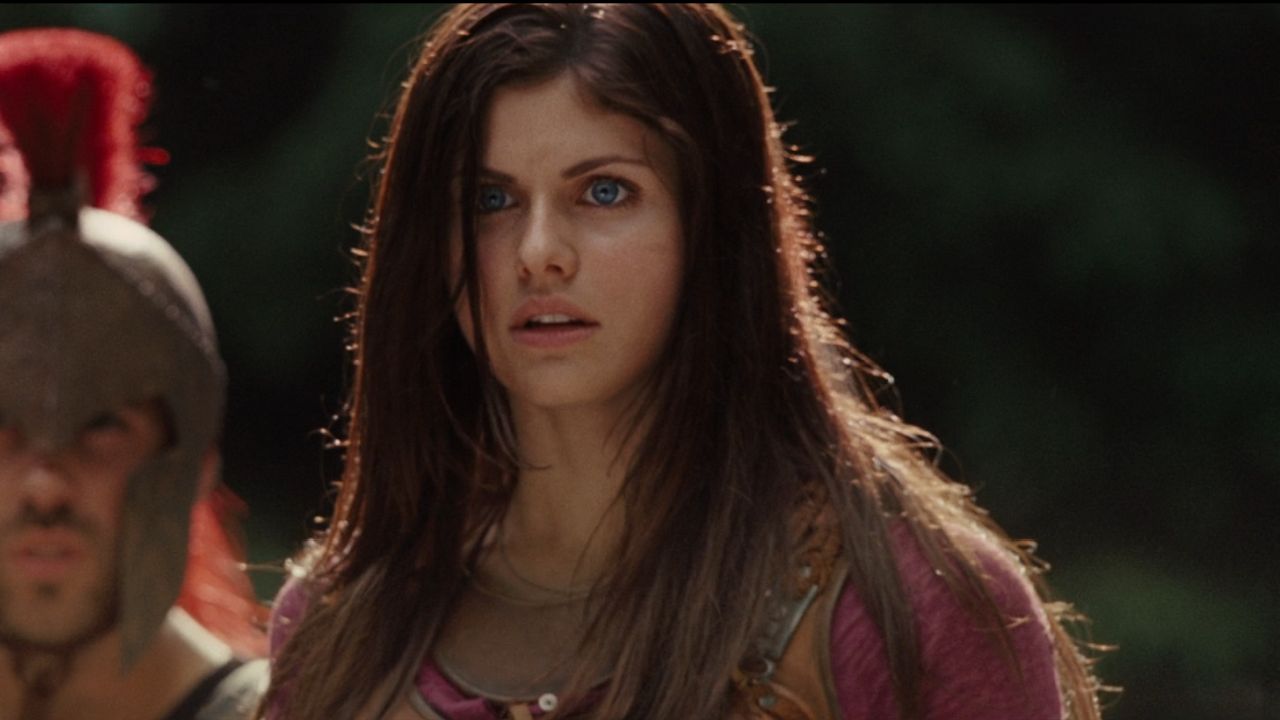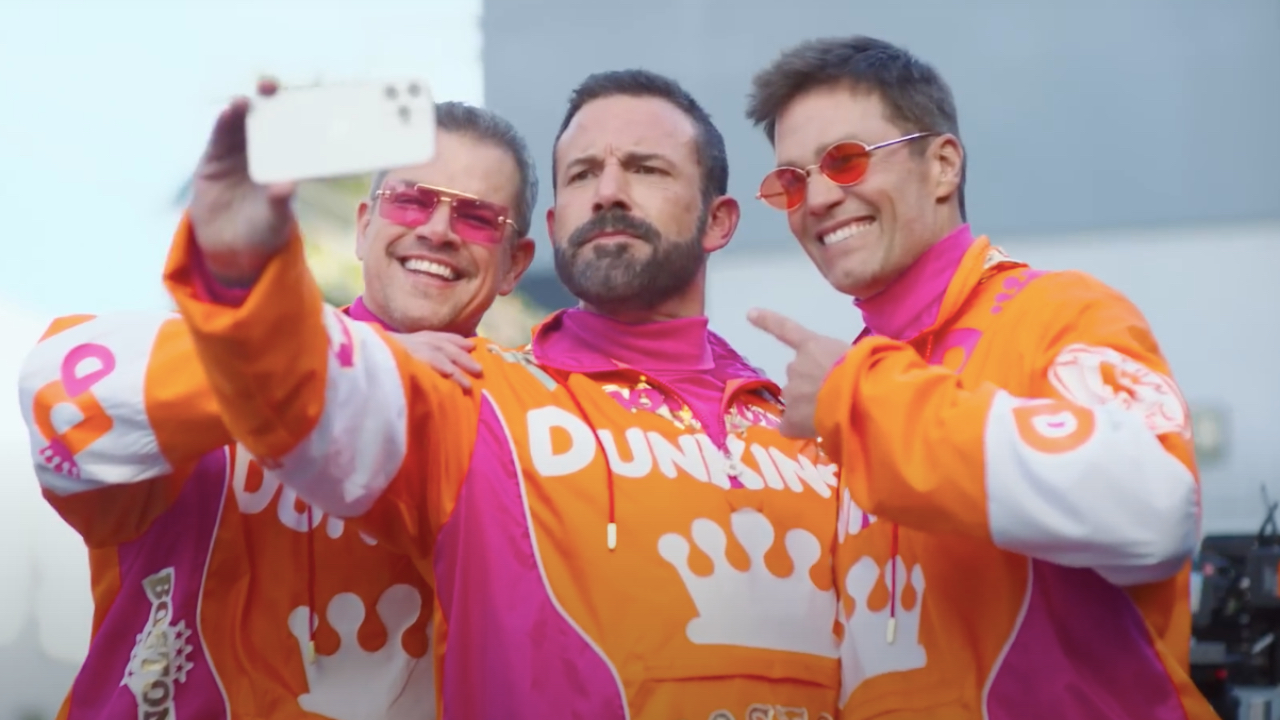Interview: Bereavement's Alexandra Daddario

Your Daily Blend of Entertainment News
You are now subscribed
Your newsletter sign-up was successful
It was just about this time last year that we all started to get to know Alexandra Daddario. Yes, even back in 2010 she had quite a list of credits to her name including a small part in The Squid and the Whale and a handful of television appearances, but it was really Percy Jackson & the Olympians: The Lightning Thief that brought her some serious attention. Now, not only is she in the comedy Hall Pass, but Stevan Mena’s latest horror film, too.
In Bereavement, the prequel to Mena’s first feature film, Malevolence, Daddario stars as Allison. After a family tragedy, she’s sent to live with her uncle and his family out in Minersville, Pennsylvania. While out for a run, she takes notice of an old slaughterhouse just down the road. Little does she know, that’s where Graham Sutter is hard at work teaching a young boy named Martin the ins and outs of torture and murder. After catching Martin in the window, Allison becomes a little too curious and takes it upon herself to investigate.
Bereavement is certainly not light entertainment in the least. Mena really knows what he’s doing when it comes to bringing a sick and twisted story to the big screen and in this case, Daddario is right in the middle of it all. She may be afraid of horror films herself, but shooting one is a different story. Oddly enough, Daddario found it far easier to perform in the more malicious moments as compared to the quieter ones. Check out what the actress had to say about that, working with Mena, her plans for the future and much more in the interview below.
We spoke back when you were promoting Percy Jackson last year, but you filmed Bereavement before that, right?
Alexandra Daddario: Yeah.
And that was your first starring role?
Yes, it was so.
Your Daily Blend of Entertainment News
How’d you go about choosing Bereavement? What was it about the film that made you want it to be that milestone in your career?
Stevan gave me this incredible opportunity to have a lead role in a film, which I’d never done before. I’m incredibly lucky because Stevan is an incredible director, he’s wonderful to work with and there was a lot to do with the character. I got to really expand as an actress and do things I’d never done before. It’s actually kind of therapeutic. It’s exciting to do something that I’ve never done before and really do some incredibly dramatic stuff.
Had you seen Malevolence?
I have. I hadn’t seen it before Bereavement, but Stevan gave me a copy while we were shooting and I watched it during the shoot.
Did that influence how you were approaching Bereavement at all?
It didn’t. I mean, you can sort of see the context, I guess, but Bereavement is really a very different film and it can stand completely on its own from Malevolence. Stevan talked a lot about Malevolence and what it was like to shoot that and it was his first film and what it was like to struggle through getting the money for it and struggle through working on such a low budget film. He has incredible stories about the things that he went through in order to get that film finished and that was really inspiring. It actually made me really look up to him and trust him and put my faith in him as a director and as someone who really loves what he’s doing and will do anything to do it.
What was it like for you not only starring in your first feature film, but also having to star as a character who goes through a pretty damn horrifying ordeal?
It was great, actually. It was like a month and a half of night shoots in Pennsylvania in December, so it was freezing and with the circumstances you can imagine we’d be way worse than we actually were because there was just something about really doing what I wanted to do and being surrounded by people who loved what they were doing that sort of makes your adrenaline go. I was really proud of being able to do something that I had never done before and I really enjoyed that experience. What sounds like a nightmare was kind of fun for me.
Are you a fan of horror movies yourself?
Honestly, I’m not. [Laughs] I get scared very easily. I’m sort of like my mother, I think, dramatic or something. I very much grew up on Disney films and my mom used to edit out all the scary parts. Even in Ghostbusters I think she sort of watered down a little bit. [Laughs] But I really enjoyed this film. I appreciate horror films for what they are, but I’m very easily scared.
So did you take any of the film home with you? Did what you went through on set keep you up at night?
No, not really. It was definitely draining. If you’re crying for 10 hours and you’re hysterical, your body actually sort of thinks that you are, so even though you know you’re not, you sort of have gone through a traumatic experience. Once you get home from that it takes a moment to recover psychically and also to fix my sleep cycle. We did a lot of night shoots. But, no. Being in the movie I think is less scary than watching it.
How did you approach developing Allison throughout the film? For much of it, she’s just your average teenager, but eventually her life is at risk and that certainly brings out other sides of her personality.
Being a normal girl, you know, she has a problem at the beginning of the film, her parents have just been killed in a car accident and she’s obviously going through a very difficult time. That was one sort of emotional level to play and then being kidnapped and going through the really traumatic parts of the movie is a completely different thing. It’s going into just a realm of hysteria and it’s a place that you can’t even imagine going.
How did that go according to the shooting schedule? It’s very unlikely you shot in order so were the more dramatic parts mixed with the more violent parts?
From what I remember, it wasn’t in order, but we did some of the less traumatic scenes in the beginning and then it tapered into night shoots. I know Stevan tried to break it up so that we’d have some days that were sort of breaks, easier days, but there was a little bit of a chunk of time where we just did the walking through the slaughter house and the scarier aspects of the film. Brett Rickaby, that was all that he did, so I actually had it easy compared to him and he really got into a very dark place for the character and his performance was incredible.
How was it working with him? What is his method for getting himself into that dark place?
I never really got to know him very well and he says he did that by choice and I understand that better now what he was doing. He purposely tired to keep himself away from developing a relationship with the people he was supposed to be torturing in the film and I think that helped keep it really real. I didn’t have the majority of my scenes with him, but when we did, I actually felt so removed from him because I didn’t know much about him. I didn’t know his kids or his family or where he’s from. I know very little about him, so it actually made it easier for me to react off of him. It was easier for me to be frightened by him and I think that was sort of exactly what he was trying to do.
What was the atmosphere like on set? Were you comfortable hanging out in that abandoned slaughterhouse to catch your breath between takes?
Yeah, oh, absolutely. It was a completely professional set. There were days where we went over, there were days that were really rough, but everyone was there because they wanted to be there. I was never pushed to a point that I didn’t want to be pushed to. I love what I do and was really willing to put in any amount of effort to give a good performance. Even if it’s freezing cold, I think I just was having so much fun doing it you don’t even have a moment to realize that it’s 10 degrees, you’re in the slaughterhouse and you’ve been working 12 hours. And that’s true with any project. When you work on a film, there’s going to be days that are crazy and you go over. There was never a moment that we were so overwhelmed that we couldn’t go on.
What about in terms of particular scenes? Was there a certain scene that was most difficult for you to shoot?
Sometimes it’s harder to play normal emotions than an extreme emotion. So, sometimes when you’re in that extreme emotion of hysteria, it’s easier to continue with that than it is to just have a regular conversation because you’re thinking more. There’s ways to keep yourself from thinking, but as far as the things you would think were too much for me, too emotional, like, for example, the scene where I’m thrown into the freezer, we realized after we finished shooting it, we did it three times, a very emotionally draining scene and me and Brett Rickaby are physically fighting and we realized after we shot it that there was a lighting issue. You could see the camera in the reflection of the mirror or something. So, Stevan was like, ‘Oh my gosh. I can’t make you do it again.’ We’re like, ‘Fine. Let’s do it.’ [There was] no point at which I really wanted to stop until we got what we needed.
I know you’ve got Hall Pass that just came out as well, but is there anything else you’re working on?
Not at the moment. It’s just sort of a couple of things up in the air and see what happens. Things can sort of change really quickly in the business, so you never know.
Are you leaning towards more modest films like this or big productions like Percy Jackson?
I enjoy doing both. It’s really if I find a character that I’m drawn to whether it’s a small production or big production, whether I’m lucky enough to have someone interested in me and myself feel a connection and feel like I can do the character justice and work with great people. I’d be lucky to work on anything that I really feel a connection for.
Staff Writer for CinemaBlend.

